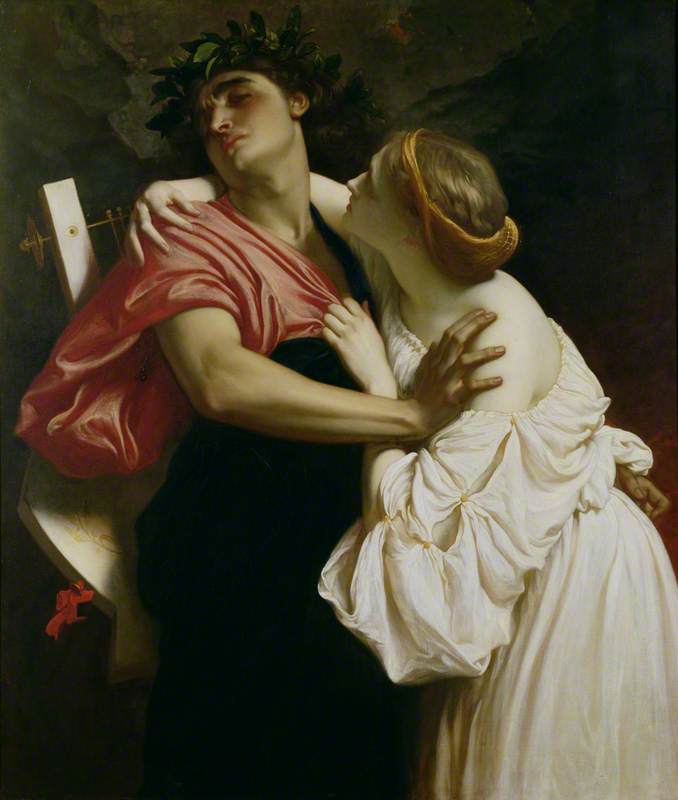The image above is Solitude by Frederic Leighton and I find it to be a comforting, captivating image.
Leighton wrote about it to his sister, saying “the vehemence of winter has scooped and worn pools so deep that . . . you come at last to absolute dark brown night . . . no sound, no faintest gurgle even reaches your ear; the silent mystery of it all absolutely invades and possesses you; that is what I vainly tried to put into my Solitude.”
This is a painting that brings home to me the importance of solitude and how deeply I need it at times. I need a quiet space in which to process my thoughts. Social media can contribute to life’s chaos, intruding on what used to be quiet moments – it’s hard to cultivate solitude when our alone time is filled with the constant pull of notifications and feeds we follow.
I love social media and Pre-Raphaelite Sisterhood would not be much of a blog without it, but I also understand that in order to grow, be healthy, and write, I need to occasionally unplug and protect my solitude.
During my most recent moment of solitude, I was thinking about the myth of Orpheus and Eurydice. I have written about it before and mentioned that for me, it is a myth about trust.
Orpheus was given his lyre by the god Apollo and it was the Muses that taught him how to play. His gift for music enchanted all living things: wild beasts, trees and even stones. After his journeys with the Argonauts, Orpheus married his love Eurydice.
When Eurydice died from a snake bite, a grieving Orpheus felt compelled to follow her into the underworld. Using his lyre to charm Pluto and Proserpina, Pluto granted Orpheus his wish to return Eurydice to the land of the living.
Orpheus was allowed to lead Eurydice back on the condition that he must not look back at his bride until they have left the underworld. Sadly, Orpheus could not help but give in and once he turned back to make certain she was there, Eurydice was instantly pulled back into the underworld forever.
Here is Orpheus and Eurydice, also painted by Frederic Leighton.

I was thinking about trust and the myth when a fresh new sentence popped into my mind, as if out of nowhere. It was so sudden that it startled me.
I bet Eurydice forgave him.
I had never thought of the story from her point of view. I don’t know why I even thought of her now, except that perhaps my subconscious is telling me that it is time to forgive some things that I never thought I could.
Sometimes we look for answers outside of ourselves when all we need is solitude and for the silent mystery of it to invade and possess us, to paraphrase Leighton.
Today I can look at his painting and see another layer, a layer of peace and strength that grows from prioritizing and protecting the soul by doing what should be a simple and effortless thing: be alone with our thoughts and see what truths they lead to.
For me, it was forgiveness and the peace that comes along with that is a gift indeed.
“Love me, then, or hate me, as you will,” I said at last, “you have my full and free forgiveness: ask now for God’s and be at peace.” —Charlotte Bronte, Jane Eyre


Leighton’s is a rather unusual presentation of the myth, isn’t it? Rather than turning to see whether she’s really there, Orpheus seems to be resisting the temptation to look at Euridice, who is imploring him to acknowledge her presence.